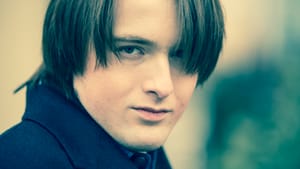Stay in the Loop
BSR publishes on a weekly schedule, with an email newsletter every Wednesday and Thursday morning. There’s no paywall, and subscribing is always free.
Past, present, and future of a Philadelphia institution
The Philadelphia Orchestra opens the 2015-2016 season

Oboe soloist Richard Woodhams spoke from the stage at the Philadelphia Orchestra’s gala opening night. He told the audience — including hundreds of big donors— that this symbol of Philadelphia culture “is in your hands.” Chairman of the board of directors Richard B. Worley seconded him.
The pleasantries masked the fact that the musicians are now playing without a contract. When the orchestra went through bankruptcy in 2011 and 2012, the players accepted a pay cut and the size of the orchestra was reduced from 105 musicians to 95. The Philadelphians previously had been paid better than the musicians in most other cities; now their salaries are lower.
A decision on salaries and benefits, of course, is not directly in the hands of the donors sitting in that audience — rather, it’s in the hands of appointed negotiators. Talks are ongoing, and it’s possible that a walkout could occur at any moment.
New season, old heritage
Nézet-Séguin chose to start the season with a reminder of the orchestra’s glorious past: Every one of the seven compositions played during the opening week is a much-performed bit of Philadelphia’s musical heritage.
Scheherazade, for example, used to appear several times each season during Leopold Stokowski’s tenure as music director from 1912 to 1938. Eugene Ormandy recorded the piece with the Philadelphians four separate times. It’s a flamboyant composition that gives great solo opportunities to the concertmaster, the principal cellist, and all of the woodwind first chairs.
Ormandy’s successor, Riccardo Muti, rebelled against the idea that the Philadelphia Orchestra had a distinctive sound that needed to be preserved. He favored a less opulent tone. Wolfgang Sawallisch and Christoph Eschenbach, in their tenures, applied classical restraint. (Sawallisch recorded a CD of Stokowski transcriptions that was well played but lacked the grandeur of his predecessor.)
Back to the beginning
From the time when Yannick became music director he has conducted many compositions that were made famous by Stokowski, apparently unafraid of comparisons. He brought intensity and richness to these pieces that we haven’t heard from any other conductor in our time.
There are differences between Yannick and Stokowski, to be sure. Stokowski had his orchestra tune to a slightly lower pitch, which produced a deep, dark foundation, something akin to an organ’s pedal tone. (The organ was Stokowski’s own solo instrument.) Also, Stokowski used overlapping bowing of the strings and overlapping breathing by the winds, which created a seamless wall of sound. It also created an aura in which the orchestra seemed to be twice as large as it actually was.
Even while we treasure Stokowski’s memory, it’s great to wallow in the sounds that Yannick brought to this music this week. Stokowski was a pioneer of high fidelity and stereo, but there’s nothing like hearing the live sound of this orchestra today.
Sergei Rachmaninoff frequently played his own compositions with the Philadelphia Orchestra, which he said was his favorite. He gave the world premiere of his Piano Concerto No. 4 in 1926 with Stokowski and a revised version in 1941 with Ormandy. Daniil Trifonov (only 24 years old) gave a sensational performance here, and Deutsche Grammophon recorded it live.
Some may feel that Yannick is spending too much time recalling the splendors of the past. I believe this heritage needs to be honored. Symphony orchestras are, almost by definition, conduits to the history of music. Performances like the ones we heard this week are logical stepping stones toward the future.
What, When, Where
Philadelphia Orchestra. Yannick Nézet-Séguin conducting. Bach (orchestration by Stokowski): Toccata and Fugue in D minor; Debussy (orchestration by Stokowski): Clair de lune; Dukas: The Sorcerer’s Apprentice; Tchaikovsky: The Nutcracker (excerpts); Ravel: Une Barque sur l'océan; Rachmaninoff: Piano Concerto No. 4 (Daniil Trifonov, pianist); Rimsky-Korsakov: Scheherazade. September 30, October 2-3, 2015 at Verizon Hall, Kimmel Center, Broad and Spruce Sts., Philadelphia. 215-893-1999 or philorch.org.
Sign up for our newsletter
All of the week's new articles, all in one place. Sign up for the free weekly BSR newsletters, and don't miss a conversation.

 Steve Cohen
Steve Cohen